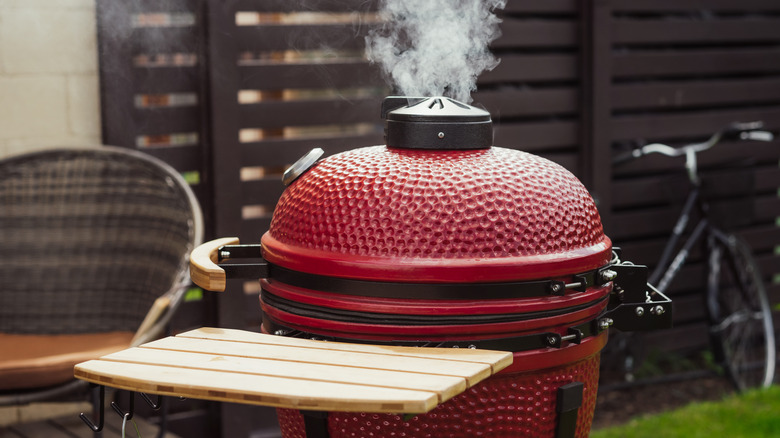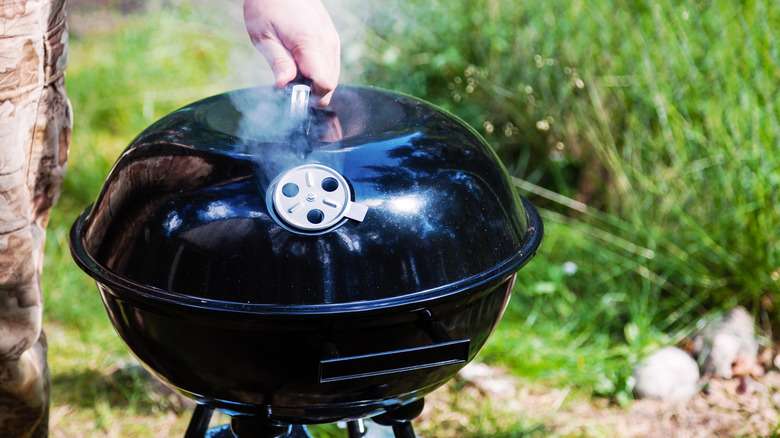When To Keep The Vents Open Vs Closed While Grilling
An underutilized and poorly understood feature of the average modern grill is the vent. Sure, it's the place where smoke escapes from the grill, but did you know that you can also use it to adjust the temperature? We recently had a chance to talk to Silvio Correa, Private Chef and Brazilian Grill Master, and he had some great insight into when you want your vents open and when they should be closed.
In a basic sense, open vents allow for more airflow, which means a hotter grill, while closed vents restrict airflow. This is particularly helpful when you're first lighting your grill. On a charcoal grill, for example, it's a good idea to "open the vents when lighting the charcoal to allow maximum airflow and quickly reach the desired temperature," Correa told Tasting Table.
Once you've reached the desired temperature, you can "adjust ventilation openings to control airflow and temperature," Correa continued. "More ventilation openings increases heat and oxygen flow." If you don't have an internal thermometer attached to your grill, you can use the color of the charcoal briquettes to safely determine how hot the grill is. However you're planning on keeping tabs on the temperature, the vents are a great tool to maintain control over it.
Grill vents are designed to control airflow and temperature
You may be wondering why you would ever close the vents if they're so good at keeping the grill hot, but cooking food at higher temperatures than it needs isn't the best idea. There's a good chance you could burn whatever you're cooking or, at the very least, your dinner could come out dry and stiff. Steakhouses often use super high heat to achieve a signature char on steak, but it's a different technique than simply cooking the steak at full blast.
One reason you'd want to close the vents would be if you are slow cooking a larger cut of meat. "Partially close the vents for slow-cooked dishes, such as ribs or brisket, to maintain a lower, more consistent temperature," says Correa. Brisket, in particular, is very sensitive to the grill or smoker's temperature and can easily dry out before you realize what's happened. You may also want to "close [the] vents to retain smoke and flavor food," Correa adds.
While Correa has some great advice for properly using vents, the unfortunate part is that it takes more than a simple tip to get good at controlling your grill's temperature. Each grill has its own personality, and you may have your own preferences. As Correa puts it, "Experiment with ventilation settings to find the perfect balance for your grill and cooking style."

